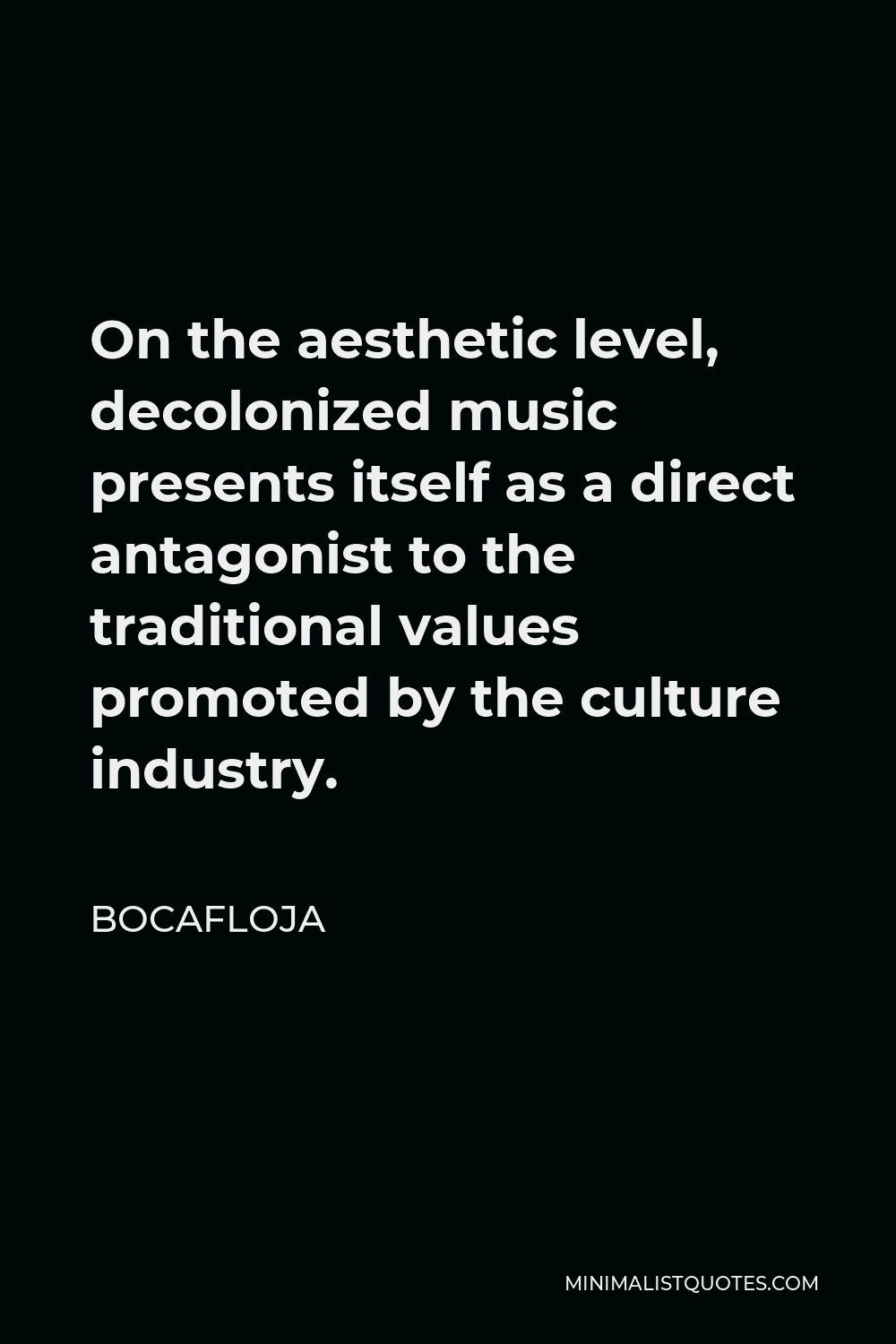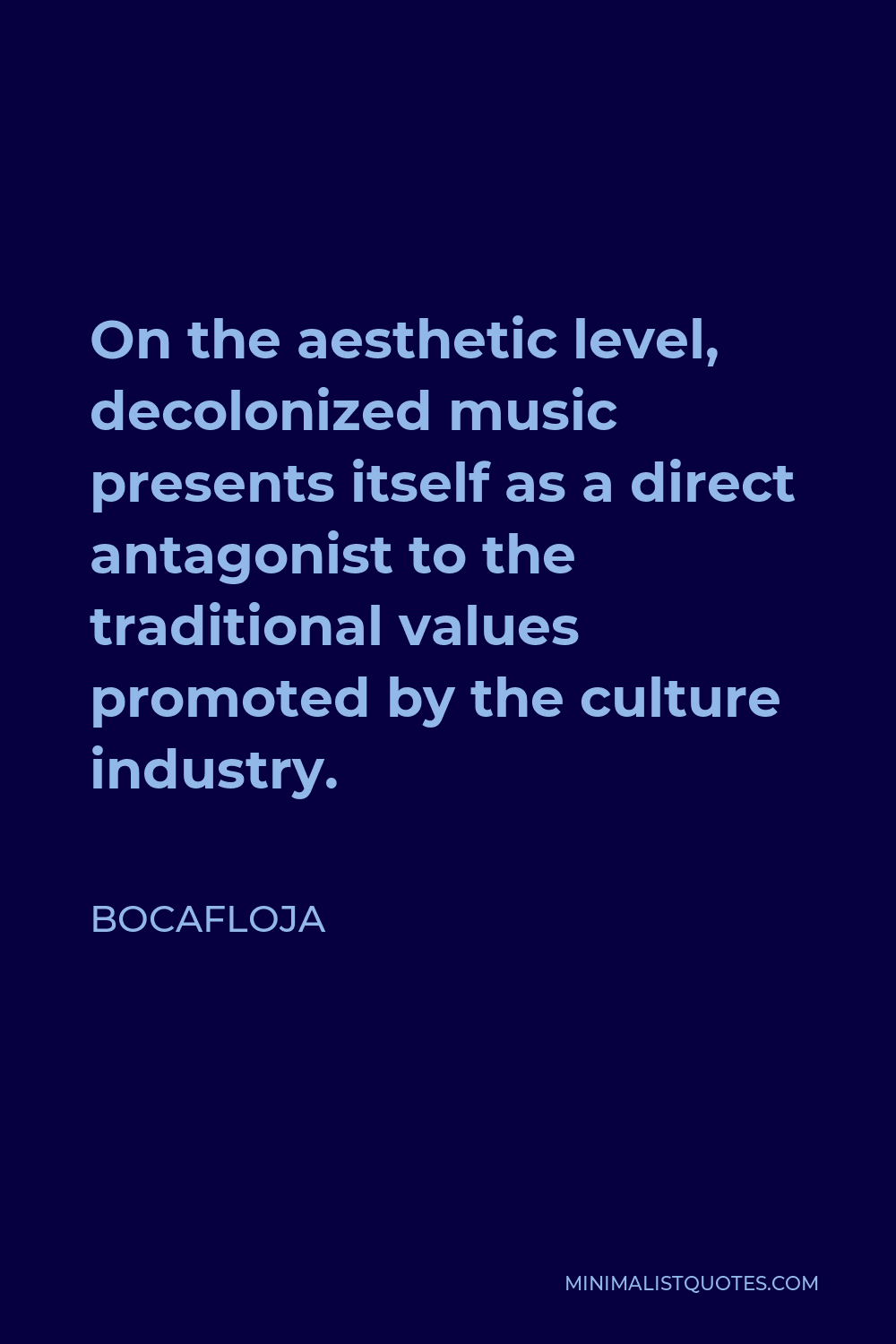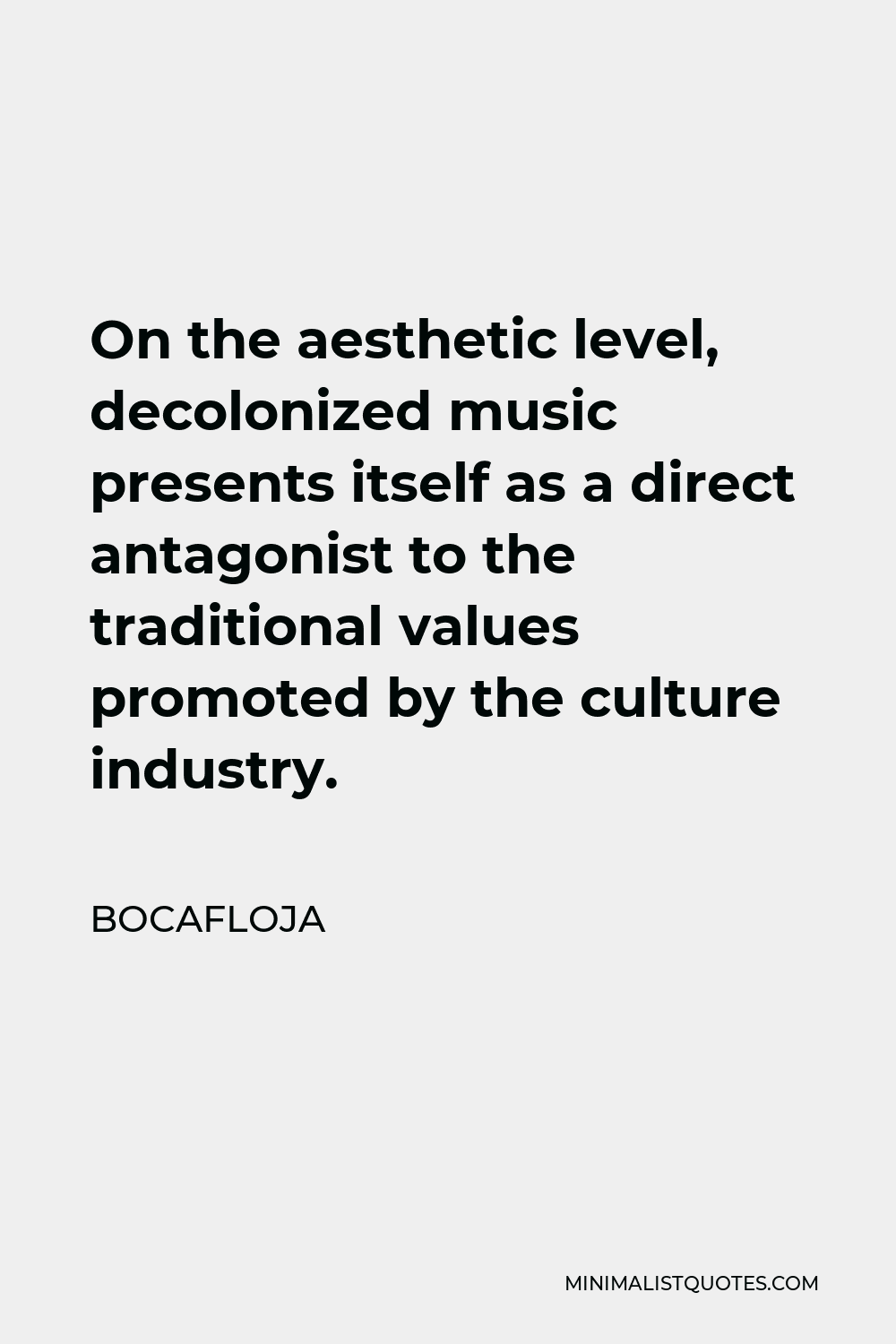I am conscious of how my body signifies in every space. In every place of the world our body has a different significance.
BOCAFLOJAOn the aesthetic level, decolonized music presents itself as a direct antagonist to the traditional values promoted by the culture industry.
More Bocafloja Quotes
-





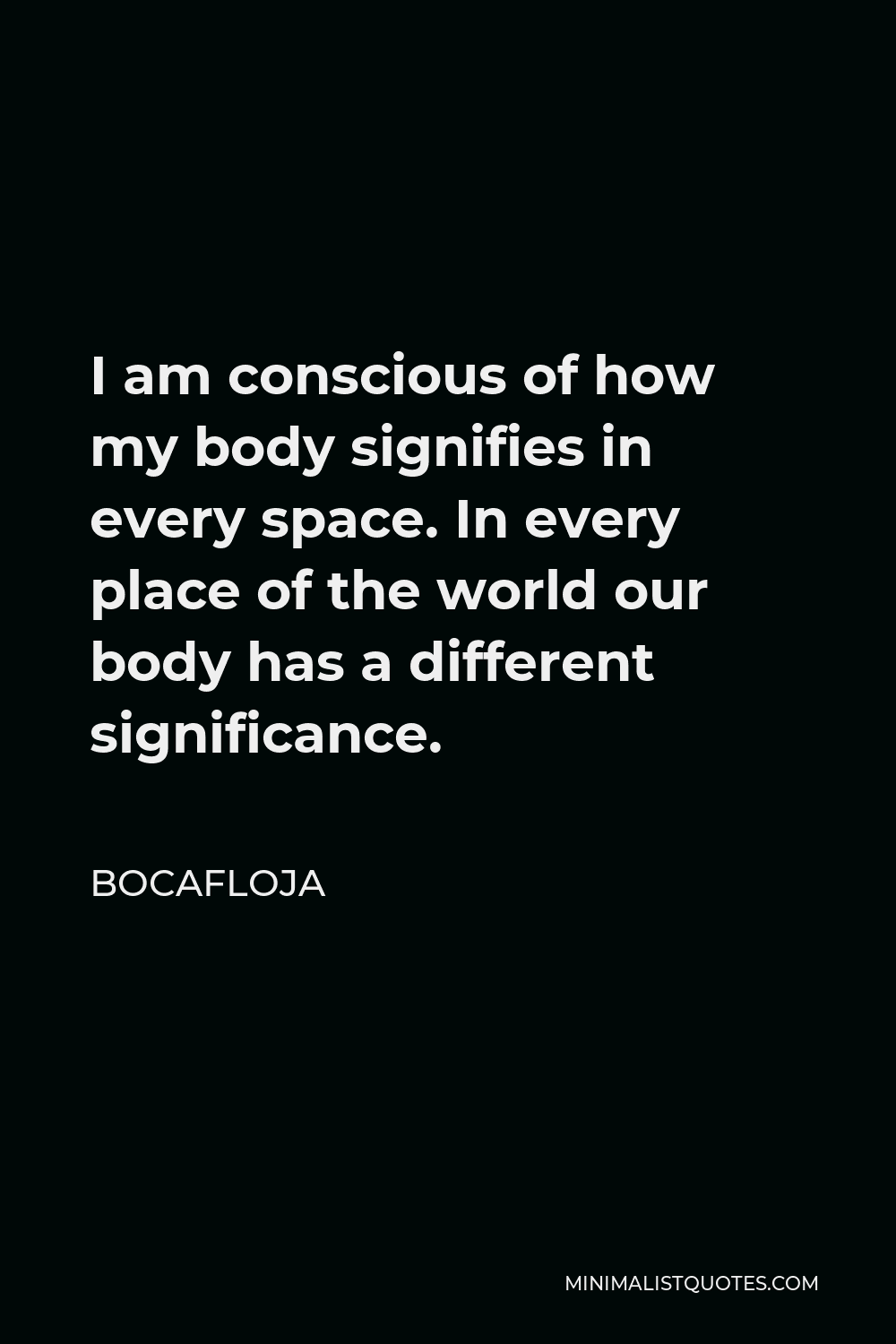
-





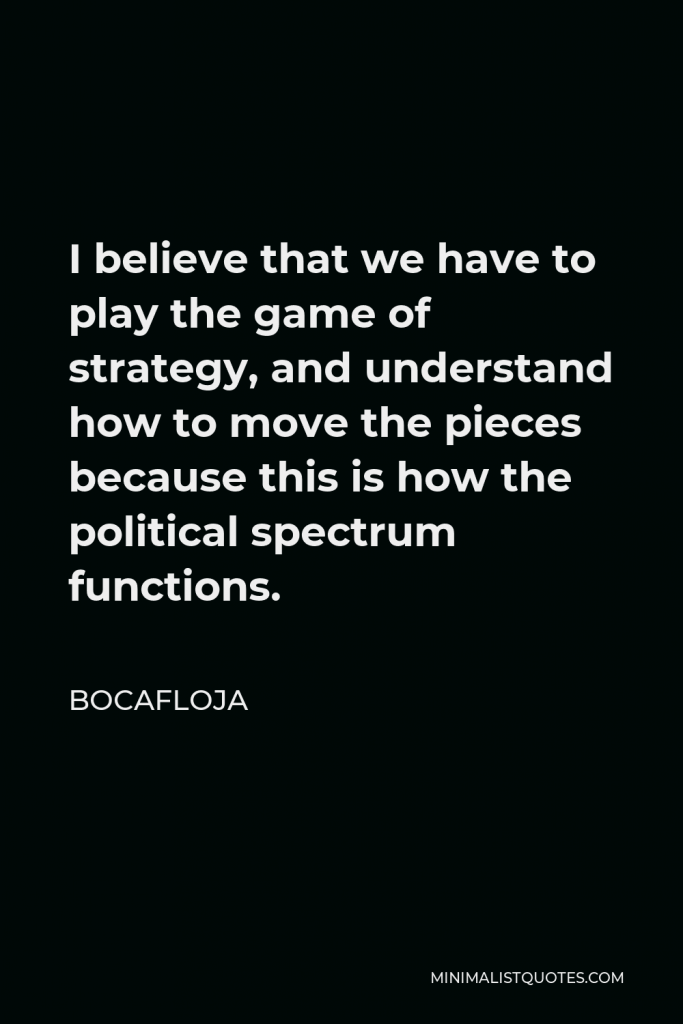

I believe that we have to play the game of strategy, and understand how to move the pieces because this is how the political spectrum functions.
BOCAFLOJA -





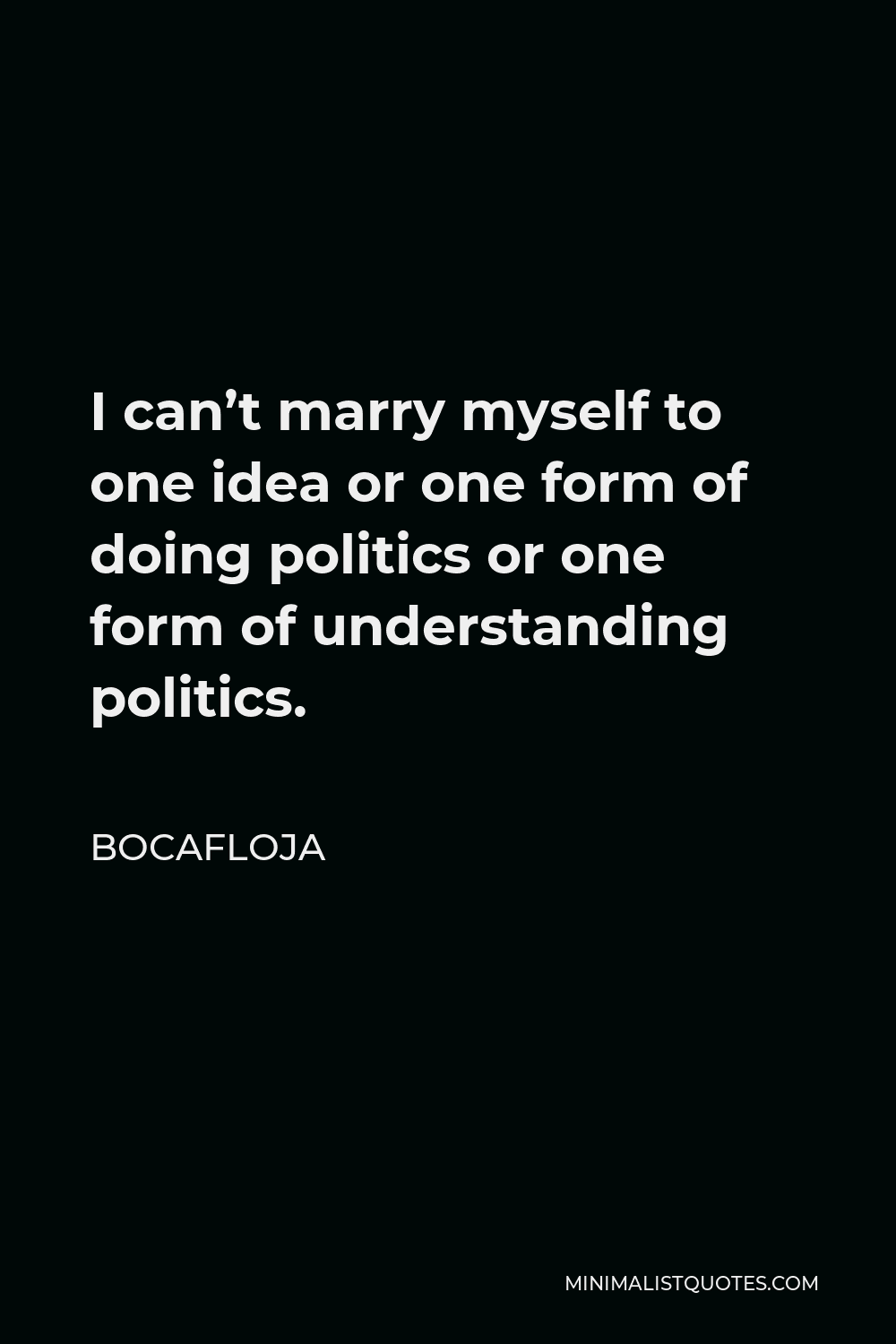
I can’t marry myself to one idea or one form of doing politics or one form of understanding politics.
BOCAFLOJA -





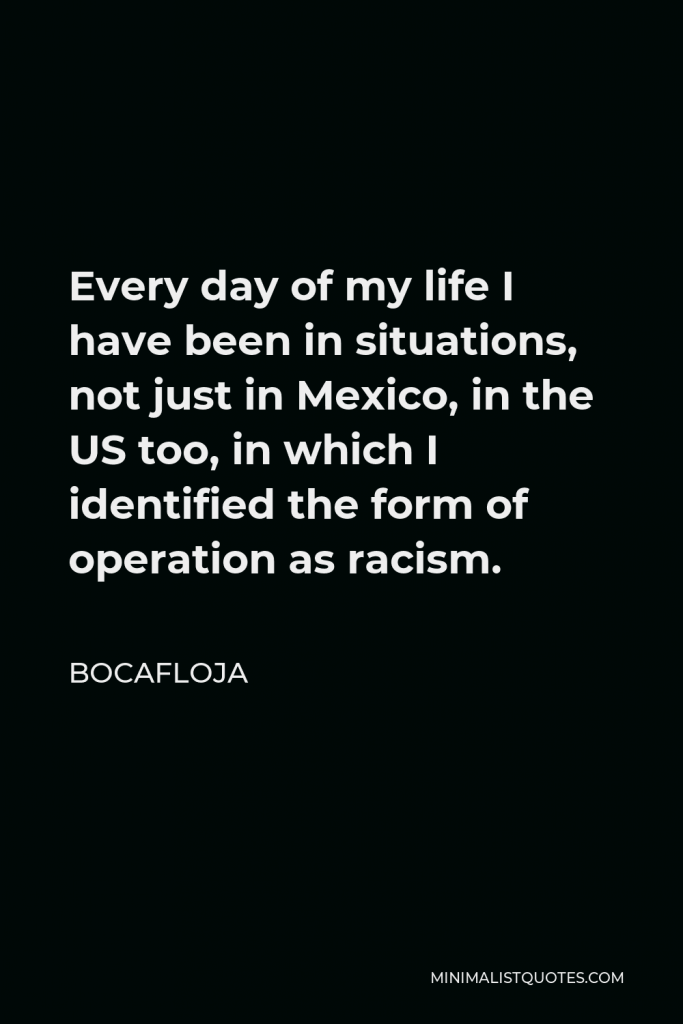

Every day of my life I have been in situations, not just in Mexico, in the US too, in which I identified the form of operation as racism.
BOCAFLOJA -





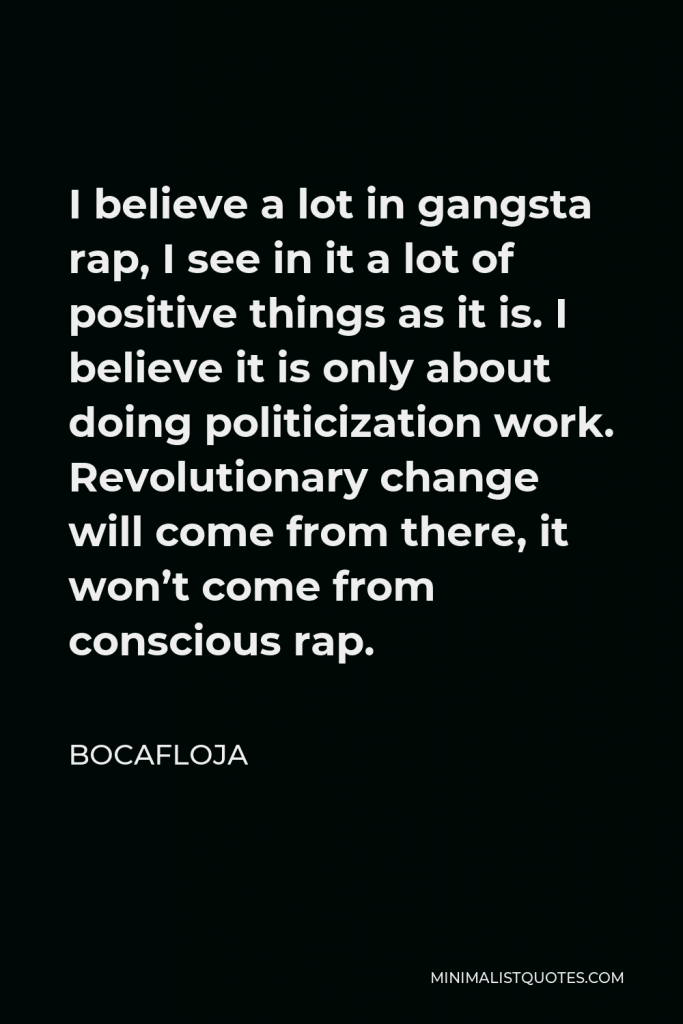

I believe a lot in gangsta rap, I see in it a lot of positive things as it is. I believe it is only about doing politicization work. Revolutionary change will come from there, it won’t come from conscious rap.
BOCAFLOJA -





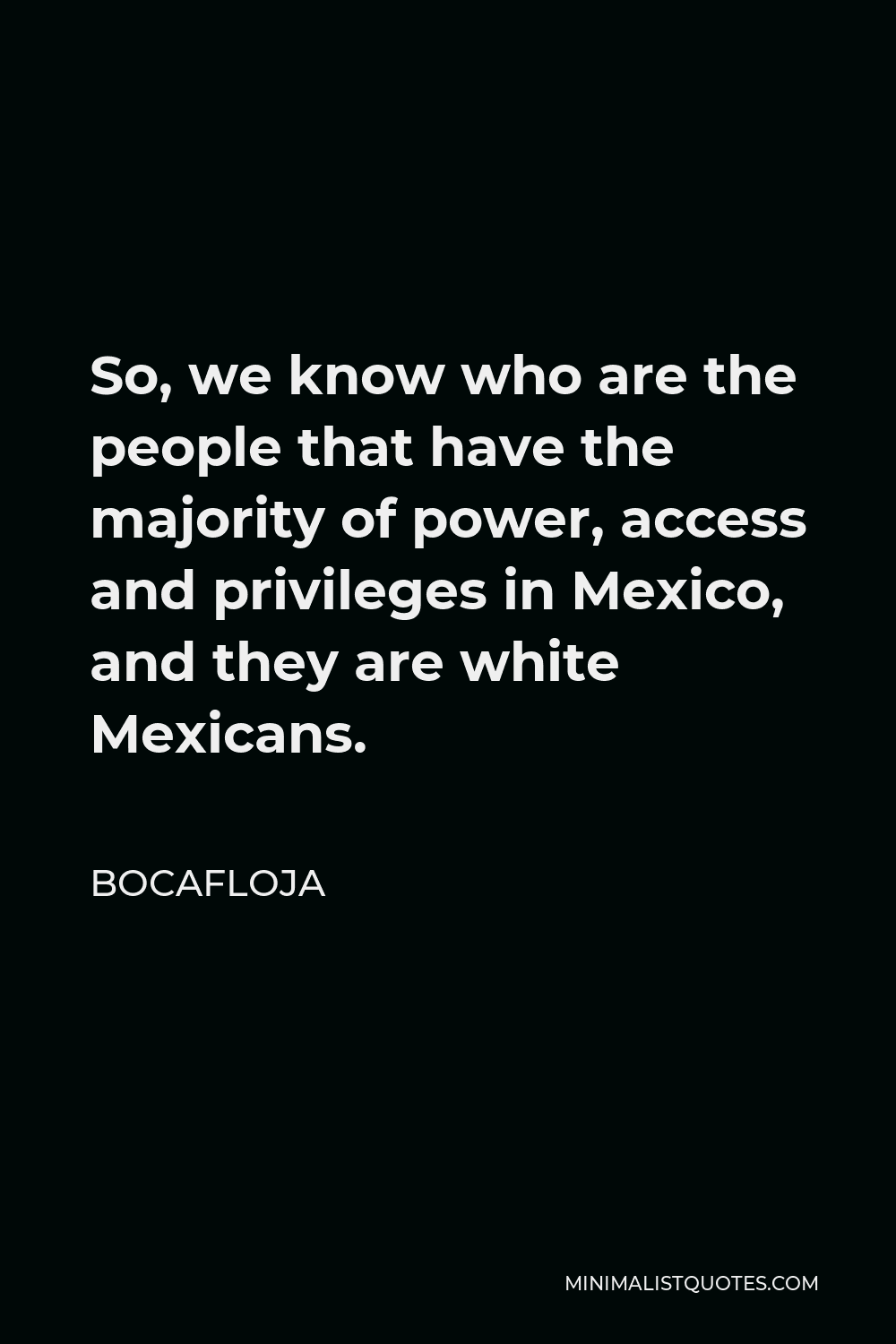
So, we know who are the people that have the majority of power, access and privileges in Mexico, and they are white Mexicans.
BOCAFLOJA -





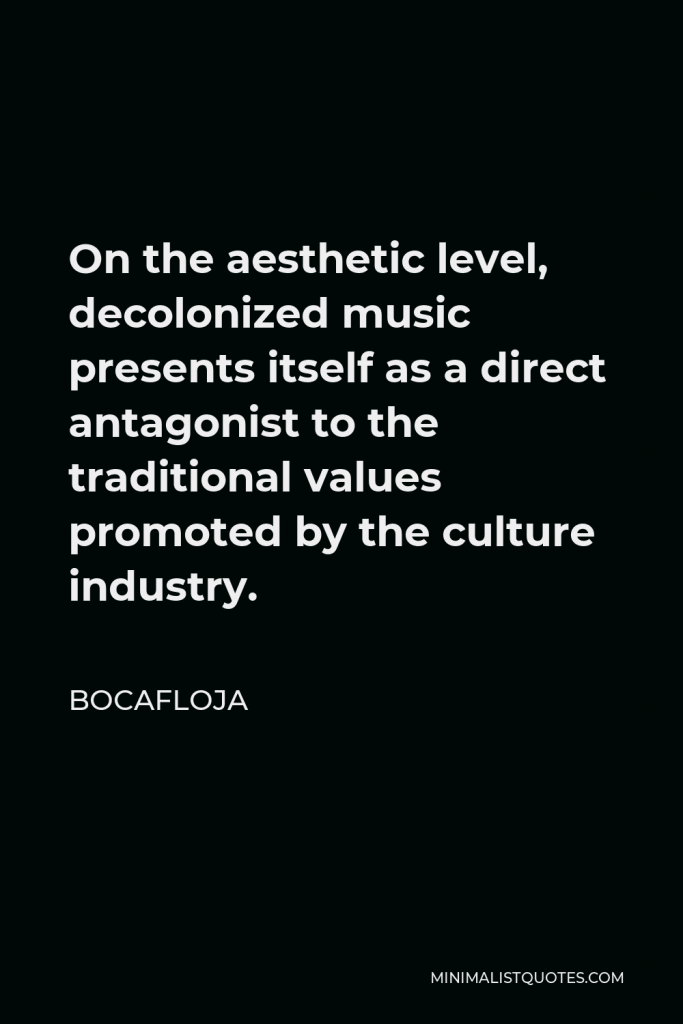

On the aesthetic level, decolonized music presents itself as a direct antagonist to the traditional values promoted by the culture industry.
BOCAFLOJA -





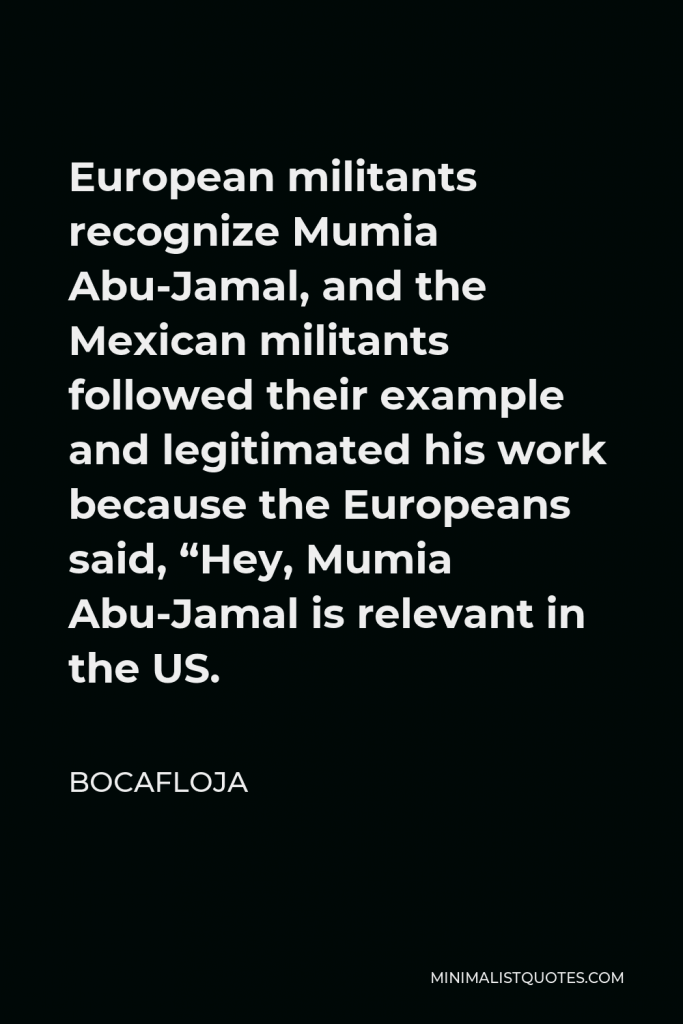

European militants recognize Mumia Abu-Jamal, and the Mexican militants followed their example and legitimated his work because the Europeans said, “Hey, Mumia Abu-Jamal is relevant in the US.
BOCAFLOJA -






Analyses that through musicality would be able to connect with people who don’t necessarily have the energy or wish in any exact moment to connect to well-read or critical analysis.
BOCAFLOJA -





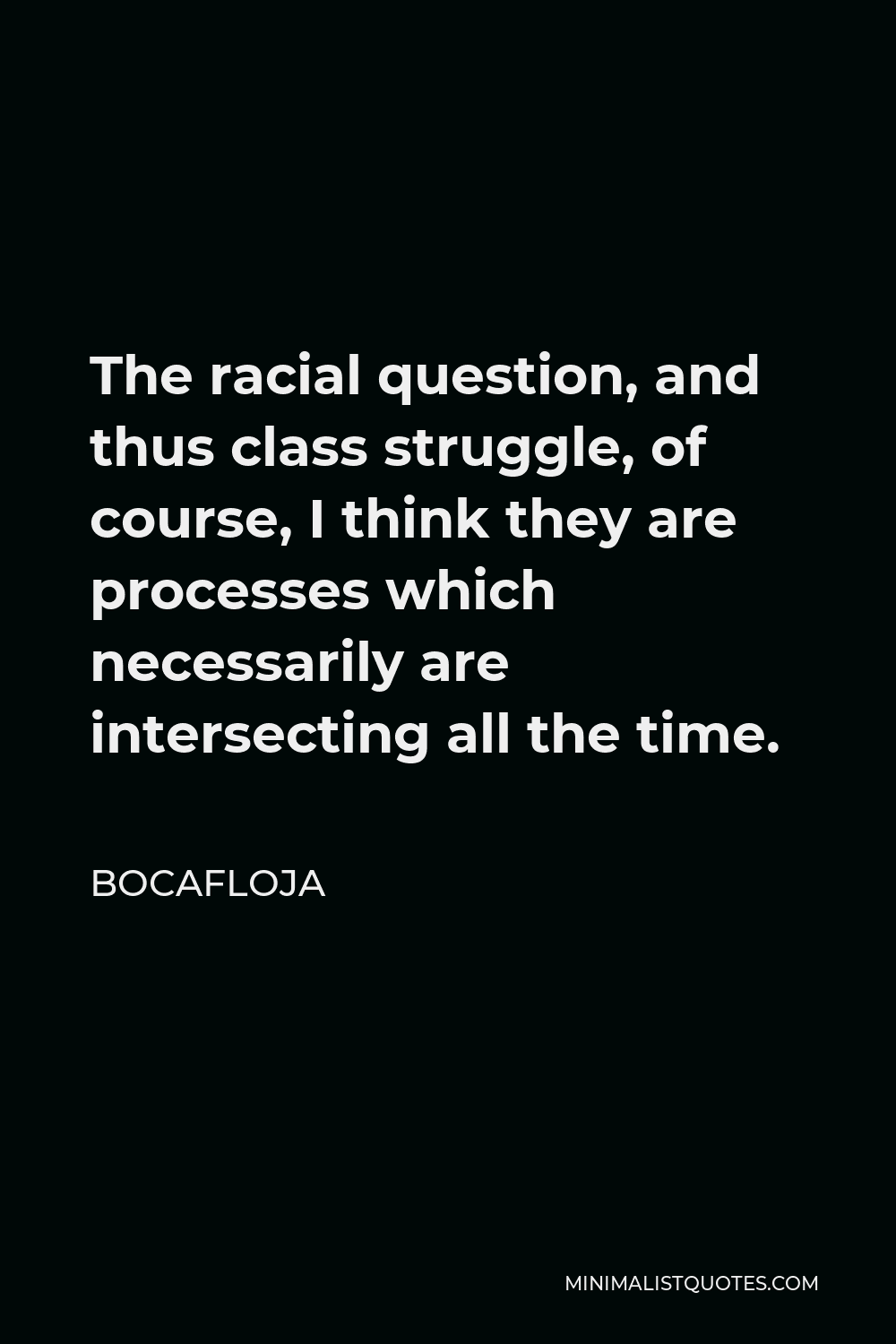
The racial question, and thus class struggle, of course, I think they are processes which necessarily are intersecting all the time.
BOCAFLOJA -





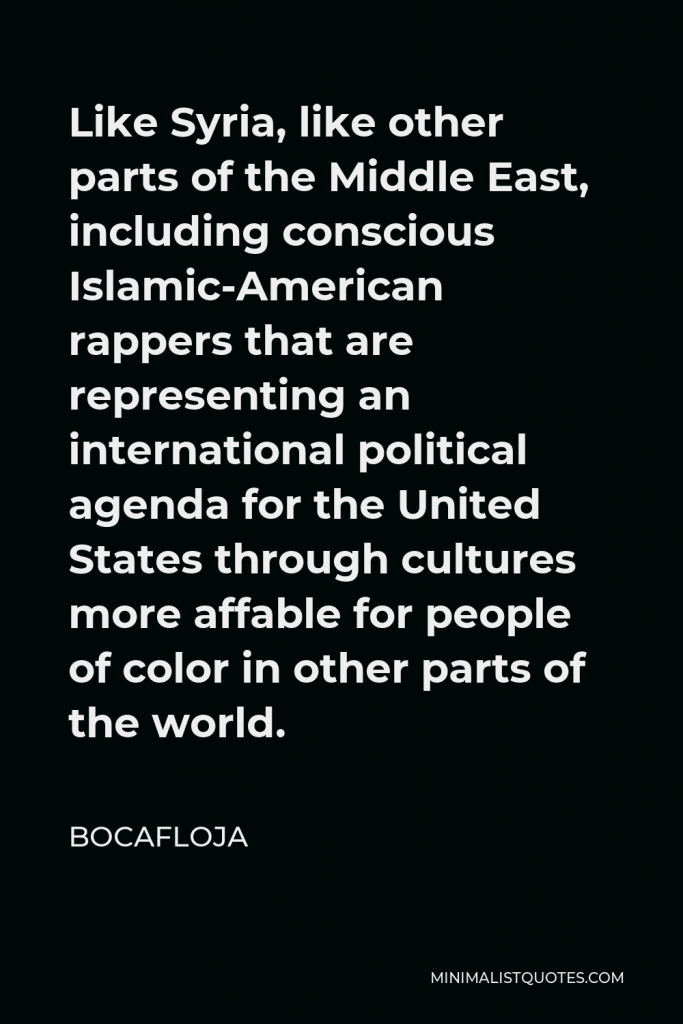

Like Syria, like other parts of the Middle East, including conscious Islamic-American rappers that are representing an international political agenda for the United States through cultures more affable for people of color in other parts of the world.
BOCAFLOJA -





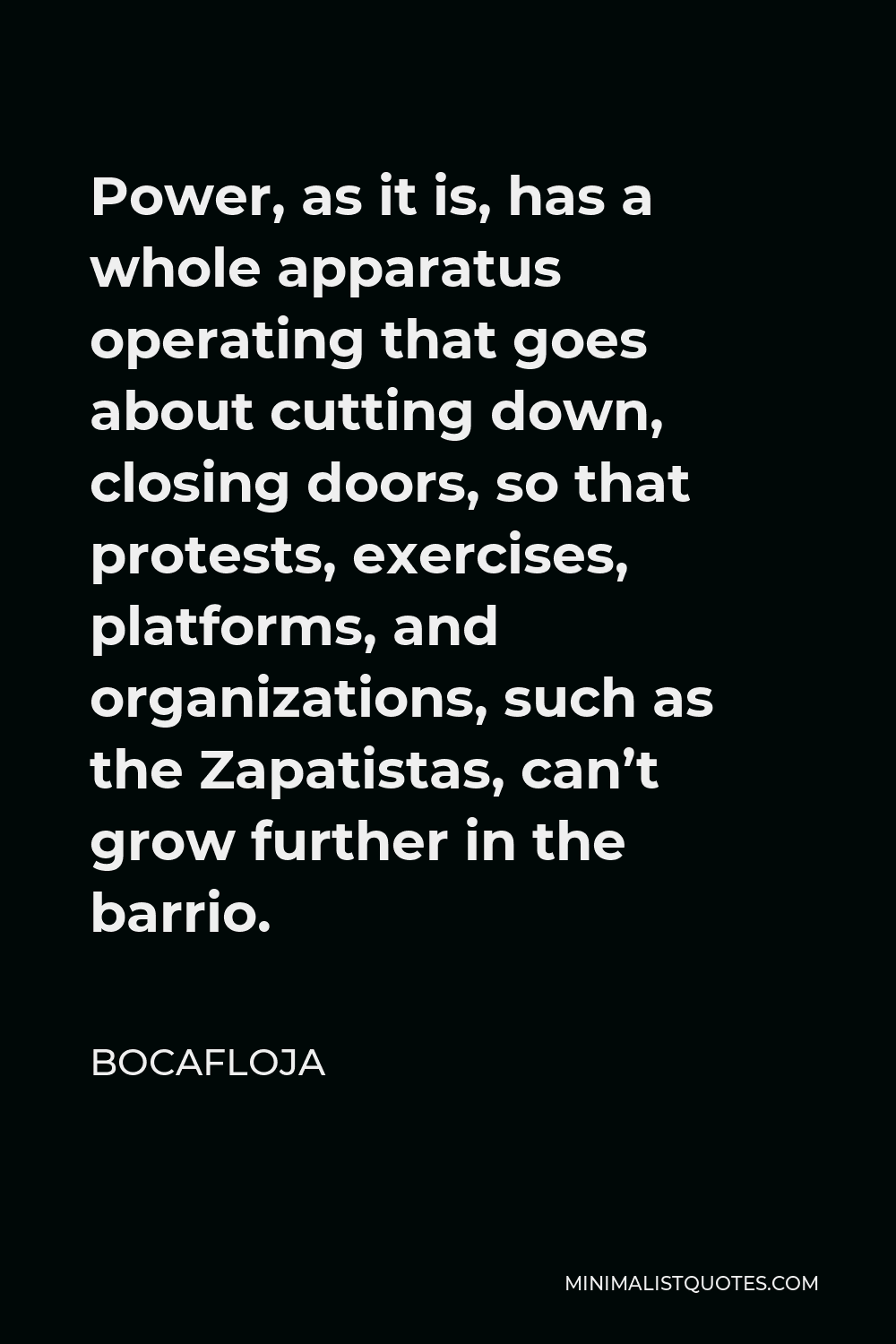
Power, as it is, has a whole apparatus operating that goes about cutting down, closing doors, so that protests, exercises, platforms, and organizations, such as the Zapatistas, can’t grow further in the barrio.
BOCAFLOJA -





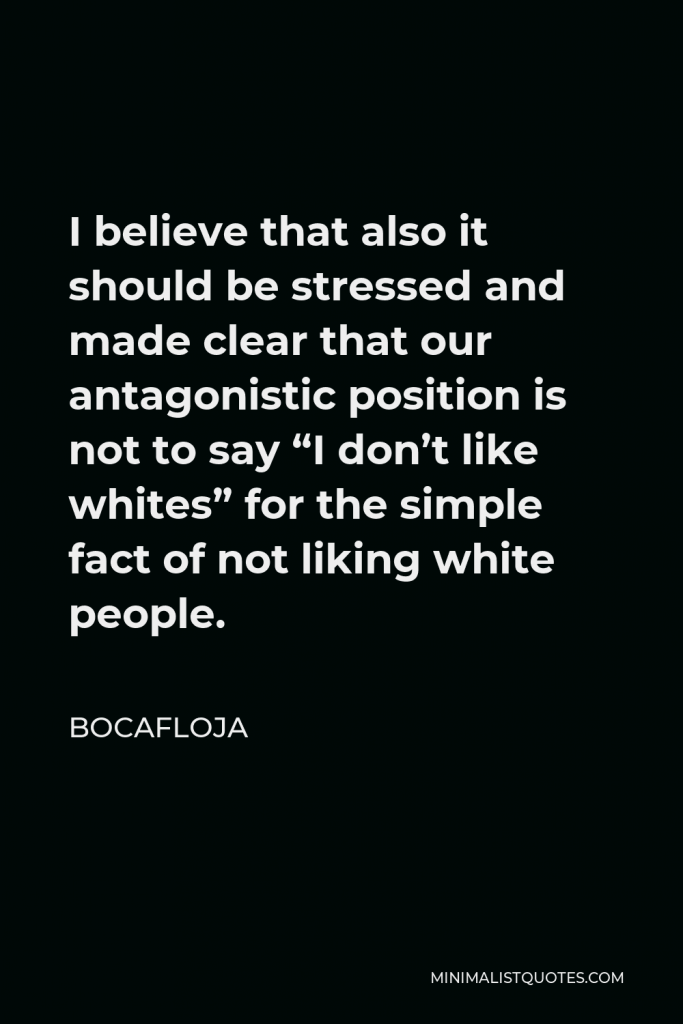

I believe that also it should be stressed and made clear that our antagonistic position is not to say “I don’t like whites” for the simple fact of not liking white people.
BOCAFLOJA -





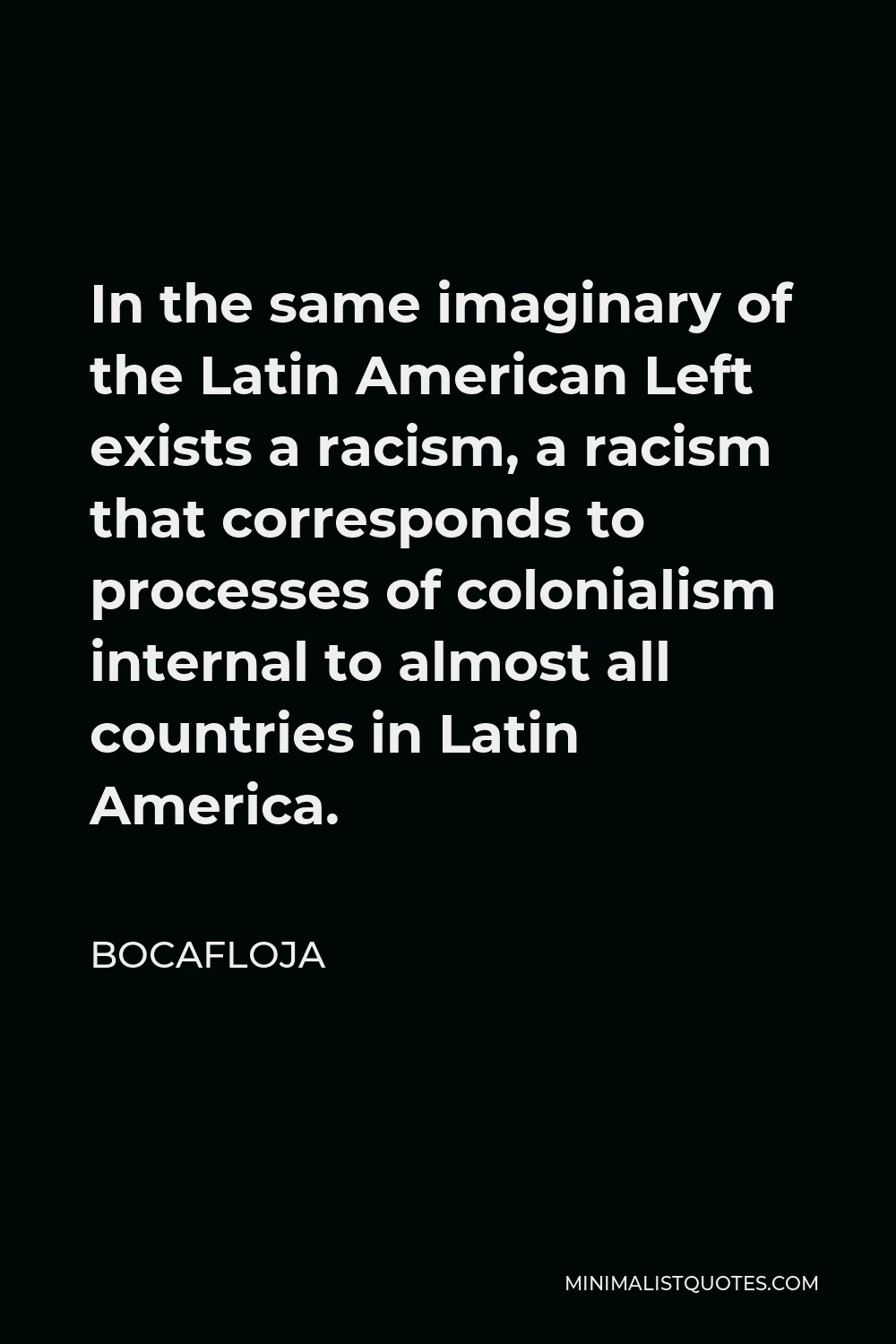
In the same imaginary of the Latin American Left exists a racism, a racism that corresponds to processes of colonialism internal to almost all countries in Latin America.
BOCAFLOJA -





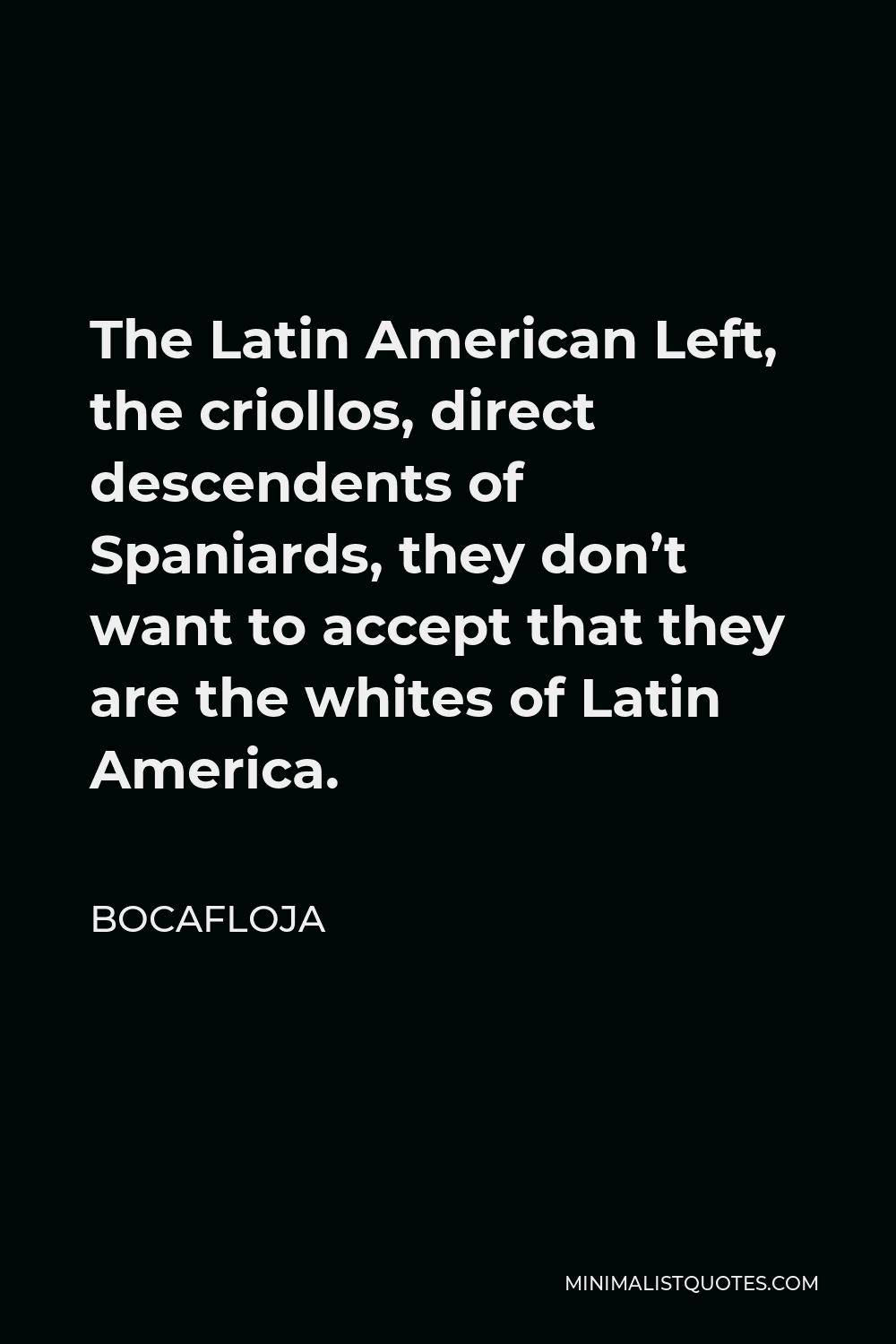
The Latin American Left, the criollos, direct descendents of Spaniards, they don’t want to accept that they are the whites of Latin America.
BOCAFLOJA -





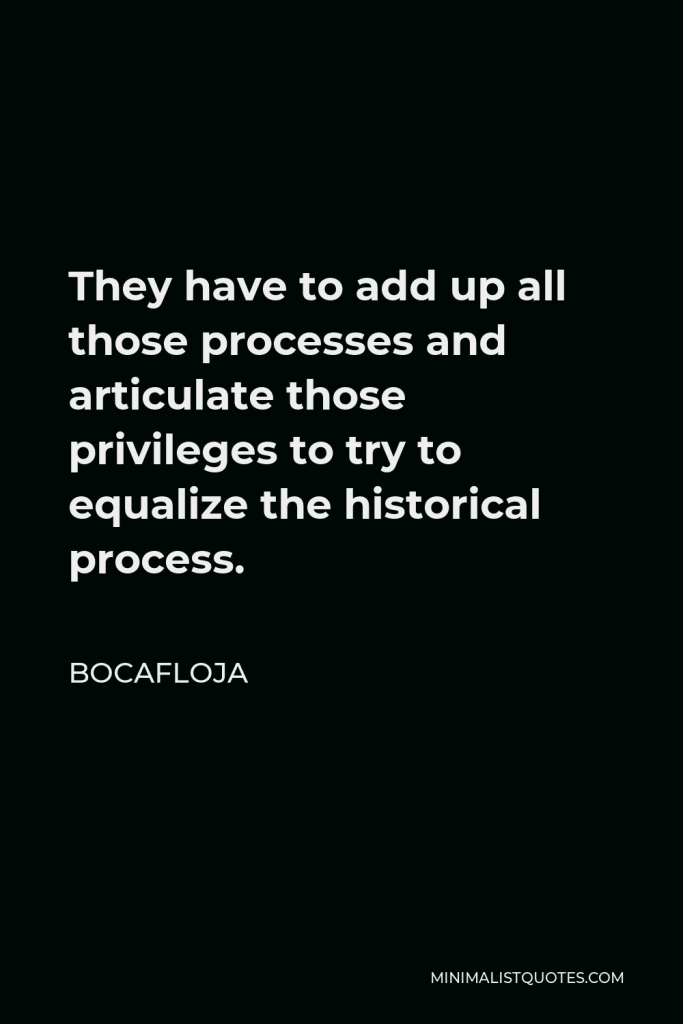

They have to add up all those processes and articulate those privileges to try to equalize the historical process.
BOCAFLOJA
